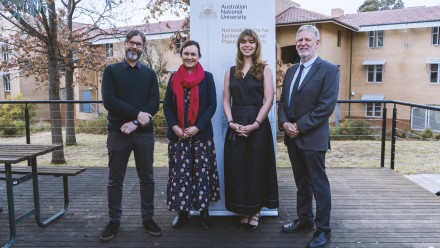Characteristics of sexual health programs for migrants, refugees, and asylum seekers
Share
Event Description
This scoping review aimed to describe the characteristics of programs for improving sexual health among migrants, refugees, and asylum seekers.
Abstract
Social, cultural, and structural determinants of health for migrants, refugees, and asylum seekers can contribute towards poorer sexual health outcomes. People from migrant, refugee, and asylum seeker backgrounds have been identified as under-utilising mainstream sexual healthcare services along with lower levels of sexual health literacy. However, there is little collated knowledge about sexual health programs that have been implemented to improve sexual health among these groups. This study aimed to describe the characteristics of programs for improving sexual health among migrants, refugees, and asylum seekers.
This study was a scoping review in which Scopus and PubMed were searched for peer-reviewed articles published in English since 2010. The final search of databases was performed in the software Covidence. The study utilised a qualitative approach using inductive thematic analysis of the content of the studies to extract and categorise the characteristics of the program. A total of 3044 articles were screened and 21 were included for data extraction. The included studies were conducted in six countries (United States of America, Australia, France, Italy, Denmark, and Belgium). The key characteristics of sexual health programs identified included: co-designed programs, cultural appropriateness, language support, peer education, self-directed learning, group learning, financial support, and outreach services. Studies used multiple characteristics together to ensure that programs improve target population engagement with educational materials and decrease barriers to accessing sexual healthcare.
Consideration of migrants, refugees, and asylum seekers’ culture, language, socioeconomic characteristics, and access to information and services in the design of the sexual health programs may improve sexual health outcomes among these groups. However, further research is needed to assess the importance and implementation feasibility of the identified characteristics for sexual health programs in Australia.
Speaker Biography
Angelina, a 2nd-year Bachelor of Health Science student, is dedicated to tackling health disparities through research and policy initiatives. Her diverse background fuels her activism, driving her to seek innovative solutions. She aspires to offer fresh insights to non-profits and governments at various levels to foster positive systemic changes. In 2021, as the Queensland Youth Health Minister, Angelina spearheaded efforts to combat period poverty by crafting an innovative Youth Bill. She has also presented a policy proposal to the U.S. Deputy Secretary of State, aiming to enhance access to sexual and reproductive health services in the Indo-Pacific region via USAID. Her advocacy extends to CALD communities, where she collaborates with MYAN and the DOHAC’s COVID-19 Youth Reference Group. Angelina's passion lies in intersectional feminism and the transformative role of sexual and reproductive healthcare in empowering diverse communities, a commitment she upholds as the youngest Board Member of SHFPACT.








